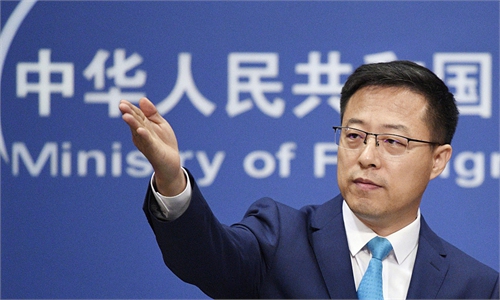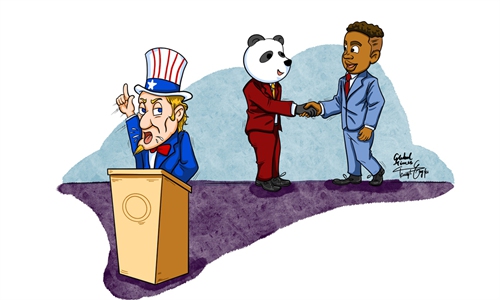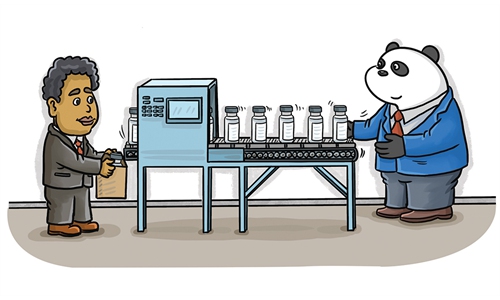
China-Africa ties Illustration: Liu Rui/GT
A vital hydropower project in Nigeria has been entangled in a legal dispute between a local company and the government, putting financing of the project from China on hold, according to a Bloomberg report.The Mambilla hydropower project is the largest infrastructure project in Nigeria to date, and one of the cooperative projects between the country and China. Besides Chinese companies having won the bid for its construction, the Export-Import Bank of China agreed to help fund the project.
China and Africa have seen rapid growth in bilateral collaboration in recent decades, and infrastructure is one of the most important areas, based on the essential need of the development of African economies and China's world-renowned skills in building infrastructure.
Taking the Mambilla hydropower project as an example, upon completion, it will be capable of generating about 4.7 billion kilowatt-hours of electricity a year.
Meanwhile, the mutual beneficial cooperation pattern cannot guarantee every project goes without a hitch; and it is simply normal for involved parties to adjust cooperative agendas according to changing situations.
However, against the backdrop of the US-led Western nations' indulging in vilifying cooperation between Africa and China, including playing up the so-called "debt trap" cliché, any projects with even a speck of participation from Chinese companies or institutions would draw attention from Western media and anti-China forces.
The cliché was used as a handy tool by the previous US Trump administration to try to drive a wedge between China and Africa, and the tool has not been given up by the new Biden administration.
US Secretary of State Antony Blinken recently repeated that rhetoric in a virtual conversation with some African youth and warned of Chinese "debt traps" and "imported labor", according to media reports.
The truth is that the US, never giving up its hegemonic mindset, has tried all sorts of means to impede the development of China, including pouring cold water on China's warming relations with other developing nations. The livelihood of African people is not on the list of the Washington's overseas agenda, as the US has for decades looked down upon Africa and the people living there.
Inversely, China has been joining hands with African countries, bringing tangible benefits to local folks. For instance, the 82 overseas cooperation zones jointly built by China and countries under the Belt and Road Initiative have created up to 300,000 local jobs, greatly boosting the development of local economies and the people's livelihood.
According to a McKinsey survey in 2017, of Chinese firms operating in Africa that the organization interviewed, 89 percent of the employees were Africans. "Scaled up across all 10,000 Chinese firms in Africa, this suggests that Chinese-owned business employ several million Africans," said the survey.
Since the establishment of the Forum on China-Africa Cooperation (FOCAC) 20 years ago, China-Africa bilateral trade have surged more than 20 times, and China's direct investment in the continent skyrocketed over 100 times.
As for Nigeria, it has become the second largest trading partner of China in Africa. In 2019, China's cumulative contract value for Nigeria's projects reached a prominent $124.38 billion, covering railways, highways, electric power stations, ports, and other facilities.
Cooperation between China and African countries will certainly have promising prospects in the post-pandemic era. The West's smearing scheme can hardly impair these cooperative relations, as the friendship and partnership between Africa and China has weathered the test of rounds of Western vitriol and attack in the past decades.



